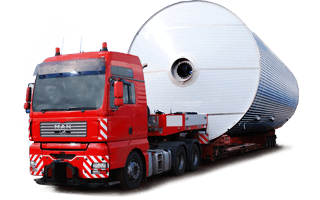Despite the difficult economic situation and military operations in many regions of Ukraine, as well as missile attacks on important infrastructure facilities regularly carried out by the Russian occupation army, the logistics services market not only works, but is also actively developing. The war brought fundamental changes to cargo transportation in Ukraine, as well as the organization of delivery of various types of products from abroad.
What problems did transport companies face with the start of the war in Ukraine?
Russian aggression has become a real test for the entire Ukrainian people and the logistics business, including. Difficulties in the field of internal and external cargo transportation, which arose literally from the first hours of the start of the war, forced transport companies to begin optimizing and transforming all business processes associated with organizing the transportation of various goods. All this led to an almost complete “reboot” and reformatting of logistics.
This need was caused, first of all, by the violation of years of proven and established logistics schemes and chains, and at the same time by the need to develop and implement new actual routes in the shortest possible time. The second important point is the maximum reduction of risks to the life and health of all participants in this process. The next nuance is problems with fuel and a significant increase in prices. There was also a redistribution of cargo volumes for different modes of transport, as seaports were blocked and air delivery was impossible. Therefore, the bulk of cargo, during the war in Ukraine, is transported by rail and road.
It should be added that many small transport companies have been forced to cease operations or are on the verge of closure. At the same time, major players in the logistics market are actively developing and expanding their activities, as the demand for domestic and international freight transportation is growing, and this is taking into account the fact that today only a small part of commercial structures have resumed their work in pre-war volumes.
The main changes in the activities of transport companies under martial law
The war dictates its conditions in the field of cargo transportation. Therefore, one of the leaders in the Ukrainian logistics services market, the transport company GLC, has made significant adjustments to its work.
- Resolving issues of warehouse space shortage. Before the start of the full-scale invasion of the Russian Army on the territory of Ukraine, more than 70% of all professionally equipped warehouses were located in the Kyiv region. After the outbreak of hostilities and missile attacks, most companies urgently transported them deep into the country, where there was already an acute shortage of warehouse space of the appropriate scale.
- Refusal to accumulate large quantities of products in warehouses. First of all, it's dangerous. Secondly, these are frozen financial resources, which are now in short supply.
- Assistance in finding reliable suppliers and manufacturers of goods and organizing their safe and prompt delivery. For most entrepreneurs, solving these issues on their own has become much more difficult, so employees of large logistics companies take on all these tasks.
- Optimization of logistics processes through precise compliance with current regulations and laws, establishing partnerships with other domestic and foreign carriers, as well as clear interaction between all participants in the logistics chain.
This approach allows the employees of “Grand Logistics Company” to solve the most complex problems and carry out rail and road freight transportation of any types of products in optimal times, at competitive rates, with a guarantee of the safety and integrity of material assets to different countries of the world.
DO YOU HAVE QUESTIONS?
Transportation of any goods from GLC
Contacts
Kyiv region, Brovary, st. Oleg Onikienko 61
Our services






